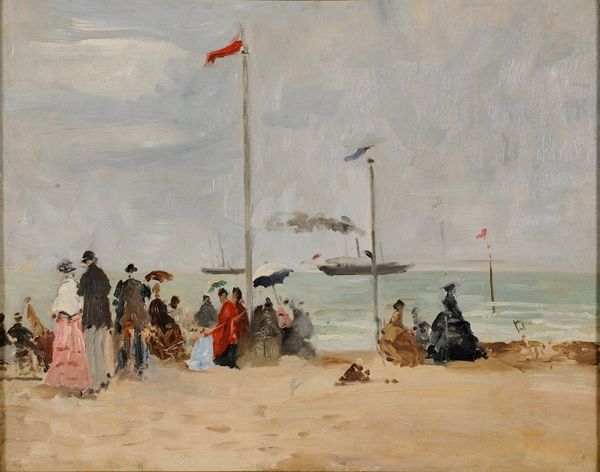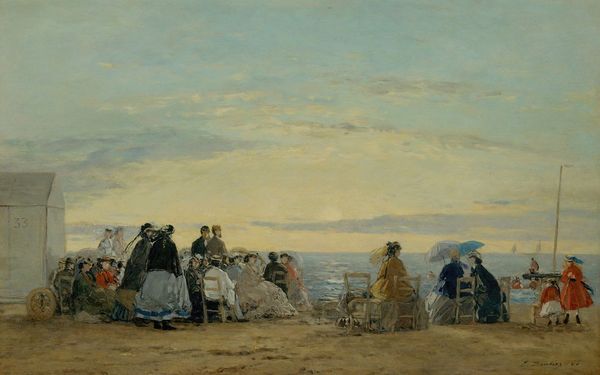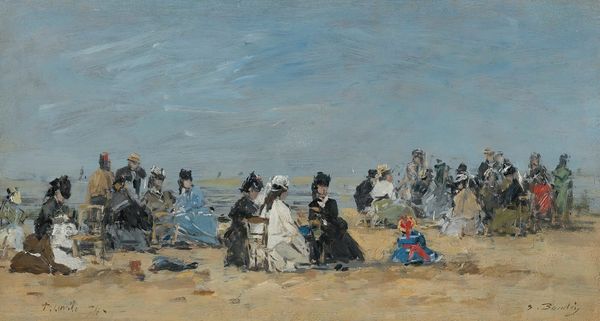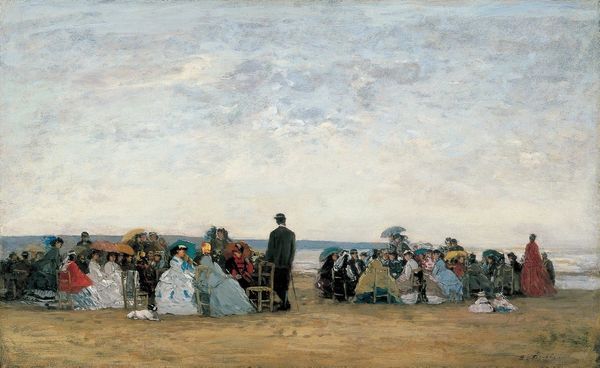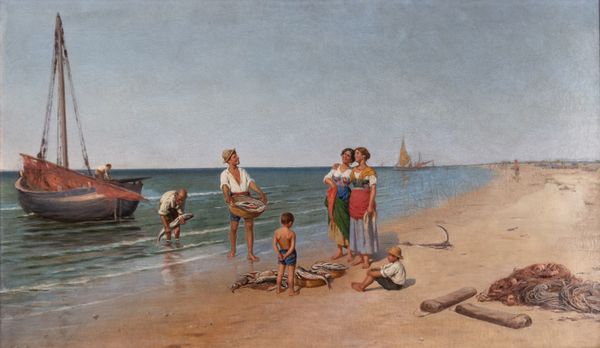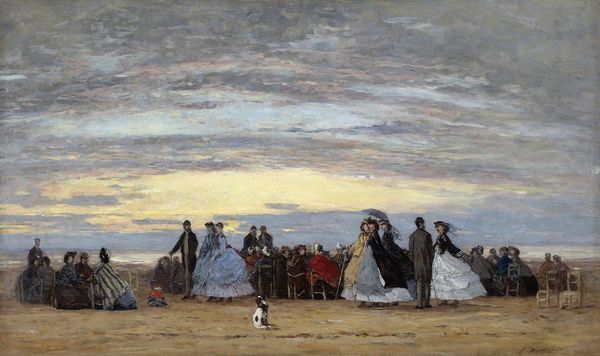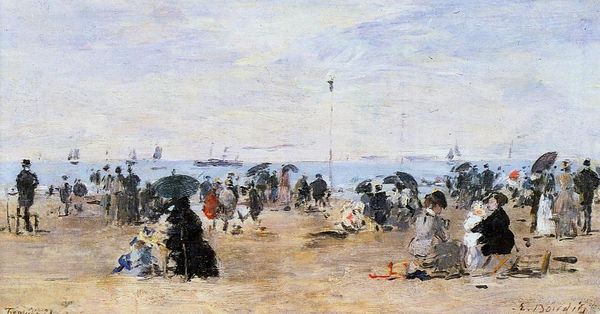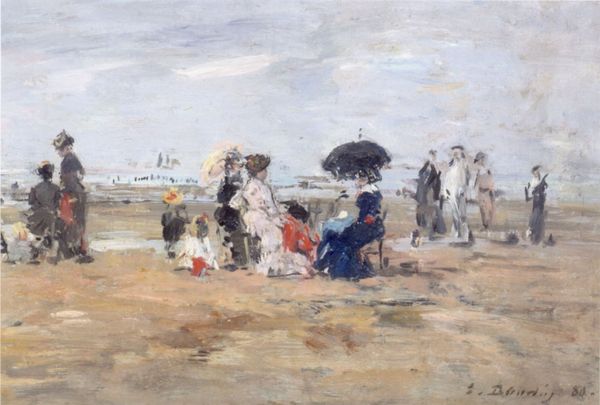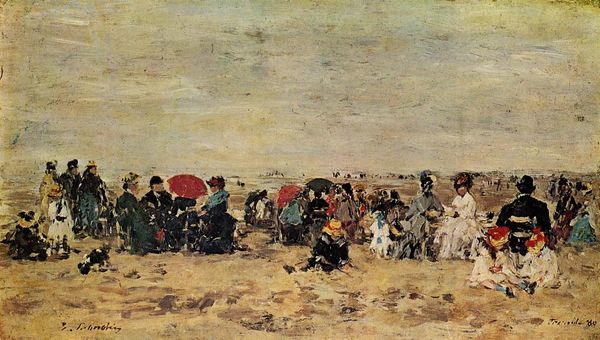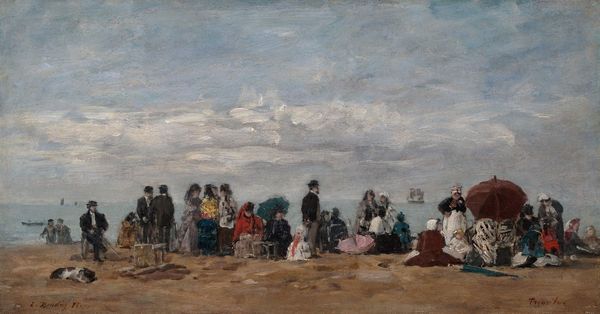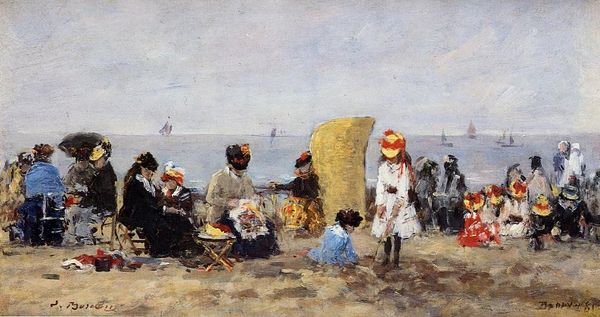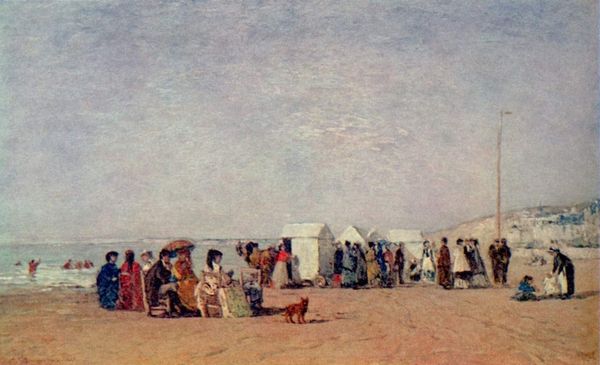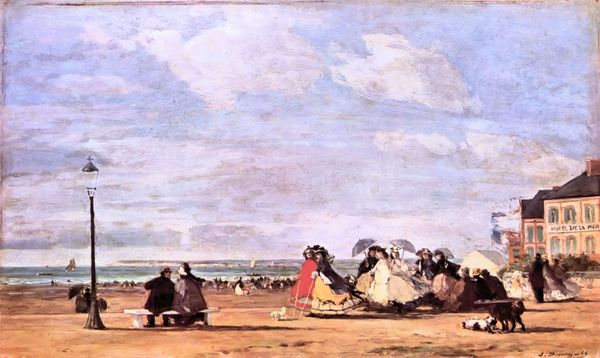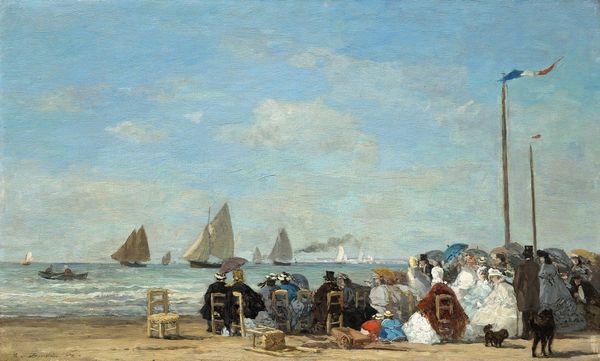
plein-air, oil-paint
#
portrait
#
impressionism
#
plein-air
#
oil-paint
#
landscape
#
figuration
#
oil painting
#
genre-painting
Dimensions: 38.9 x 55.8 cm
Copyright: Public domain
Curator: Immediately I see such a restrained palette—it almost feels like a memory, something faded at the edges of recollection. Editor: It does have that ethereal quality. What we are viewing is “A Game of Croquet”, created around 1872. The artist is Louise Abbéma. It's an oil on canvas, evoking the feeling of leisure that characterized the Impressionist era. Curator: Right, the whole composition exudes the air of languid afternoons. It’s interesting how she captures the subtle gestures, like the bending figure absorbed in lining up the shot. And the distant figures further down the beach look like little ghostly echoes of the main group. I wonder if she used real folks here, or was simply doing what other Impressionist peers were also invested in—namely showing modern pastimes? Editor: Abbéma occupied an interesting space as a woman in a male-dominated field, and "A Game of Croquet", in its quiet way, reflects her position. Croquet, at that time, provided an unusual venue for mixing genders outside the formalities of calling, etc. One might consider the space carefully planned for these particular types of interactions. What one could wear. How one presented. Curator: That's insightful. You get the feeling that even recreation here carries social weight. Still, there's something pleasing about the play of light and shadow across the sand; those little flickers of white on hats and skirts lift my spirits, even if rules are involved and reputations are at stake. Editor: Rules, expectations, yes. These Impressionists captured the way social structures influence leisure time. The setting, the clothing, even the game, becomes part of a staged tableau. We tend to imagine impressionism only as freedom. But was it? Curator: Perhaps, "freedom" only insofar as Abbéma finds a kind of aesthetic freedom in its depiction, right? An echo of something real, a touch of nostalgia and beauty on a sandy day. Editor: Yes, an intimate rendering of a very specific historical scene—that says more than perhaps the subjects would allow.
Comments
No comments
Be the first to comment and join the conversation on the ultimate creative platform.
